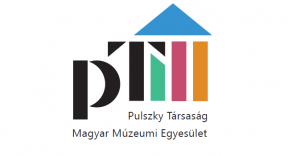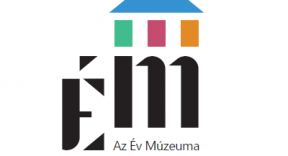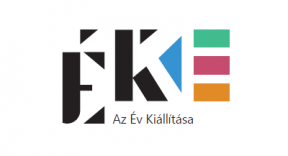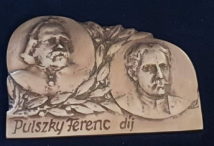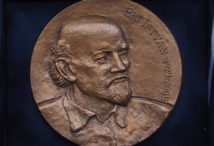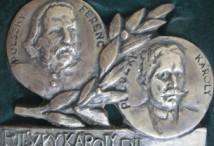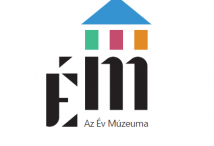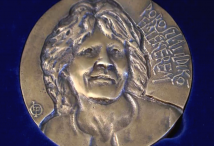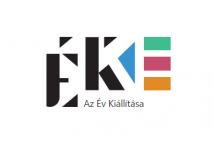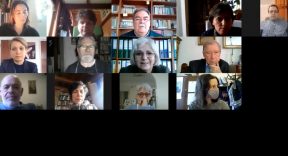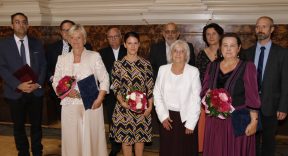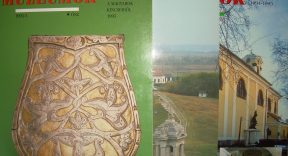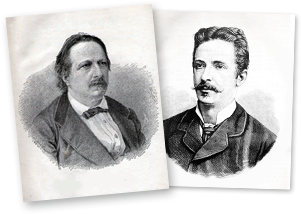Since the last decade, we have learned (or at least have learned a lot about it) what social responsibility for cultural institutions and their employees means. Time of peace had been a real and reasonable, in fact the only known condition of living for all age-groups of museum employees now active, until 24th February 2022. What we had learned and applied so far has been relevant and value-creating in our everyday life, and we thought it inconceivable that all this could be in any other way, that our everyday lives could take another turn.
While the middle generations had experiences on the Yugoslav Wars in the nineties, we had fears about Afghanistan – not only in 2021 but also as university students in 1980 – we knew, lived through, or learned about what happened in Hungary in 1956, or in Czechoslovakia in 1968, or in Poland in 1980/81. As members of the middle and older generations, we also experienced what happened during the collapse of the Soviet Union in Hungary and throughout the Eastern European block. Many of us have learned and experienced the community involvement of the members of society – basically originated from their civic engagement – in times of natural and industrial catastrophies in our country.
We remember how our compatriots helped those who were fighting and suffering for the changes in Romania in December 1989. It is only a week ago, the members of our research team finalized the first chapter of a recommendations for our colleagues to develop a museum vision and program plan based on experiences and results of “Museums Today 2020” survey. However, on 24th February 2022, a new era began in Europe. Now, we have to redefine individual and family life and activities in a completely different context.
What does social responsibility mean for museologists and his or her institution throughout the current situation?
It is a different, extraordinary time, in which we live today: the certainties of our lives and the lives of our friends and acquaintances may be questioned in an instant, and perhaps we also have to follow other paths.
This has already been evidenced, however on a completely different scale, by the events of the last two years following the coronavirus epidemic. Now everything has changed overnight, events rumbling around us are global, affecting us, our families, our larger communities, our country and the whole world.
Many people ask: how can I help to make things much better?
What we, museum employees or any people associated with museums, can do? What does our social responsibility mean and may provide now, already not in peacetime? Through which recommendations can we help our museum colleagues today, 28th February, and in the future? How can we help, what can we do, how can we make good use of our own tools and opportunities? All of this affects everyone working in a museum, it doesn’t depend on whether we are museologists, senior executives, or caretakers, museum tour guides, or volunteers in our institution.
– Let’s try to continue our professional work to the highest possible standards and, if necessary, focus on the protection of our collections in an extraordinary situation, in an extraordinary time.
– Let’s assess how we can help as individuals, but most of all help well.
– With a personal presence, volunteering job, where, when and as long as we are needed, paying maximum attention to where and what is needed at the given moment.
– With temporarily hosting families and refugees, interpretation, if we have the opportunity to do so.
– In ou ernvironment we can do a lot to help the integration of those who have already arrived.
– We can help by passing an authentic information and helping to ensure that the needs and requirements of those in need are met by donations in the shortest possible way.
What kind of opportunities our museum institutions have to provide assistance?
– There are already examples regarding our museums signing up for fundraising points, and museum-staff are actively involved in this work.
– The museum will provide a place for the collected donations very important for the refugees before dispatching them.
– Institutions should contact and coordinate their professional fundraising activities, and they must synchronize each of their donating efforts.
– Lets offer the museum’s guest rooms for temporary accomodation. This process has already started in Hungary.
– The museum’s managers – especially in the most affected areas of Easters Hungary – should provide premises in their free or vacant spaces where donations can be temporarily stored, groupped, selected and packed according to age groups.
– Let’s launch a special “Shoe Box promotion program” with the help of museums, which will make facilitate the travel of refugees or provide normal living conditions in their temporary accommodation.
– The museum’s managers should contact the Ukrainian museums in their respective field of epertise, which have or have not yet been affected by the military operations, and help them to answer their professional questions, which can also help to preserve and save the collections.
– In the future, the museum should organize special programmes in the given settlement, at the headquarters of the museum, or in its surroundings, which help the newcomers to cope with the radical change in their life situation, especially for mothers and grandparents with children.
– The managers and the staff should provide assistance for the refugees with the museum’s resources, even though by mentoring, to settle down, find a job that matches their qualifications, and thus earn a decent income, and reduce the language difficulties of those who speak only Ukrainian. In this way, they can return to their homeland with good memories after the peace will be reestablished which we all strongly hope.
– The museum’s managers should take the opportunity to help their staff to deal with the current situation and to provide quality professional and support work.
– The managers should seek opportunities with their conservators to use the museum” special resources to assist in charity activities in favour of the receivers, the caregivers and all those facilitating this activity
– In the future, museum educational professionals should organise museum education sessions that help children in particular to deal with the trauma they had suffered.
– As the situation returns to normal, museums should provide free admission for those coming from Ukraine.
– The colleagues should document and archive local events related to war, escape, and reception of the refugees in museum institutions in their settlement.
Last but not least: national museums, county-level city museums, regional and thematic museums, and also the smallest museum institutions should play an inspirational role together and separately in this current mission. Everyone in their place, using his own possibilities, but together, help in a synchronized way and where and for as long as possible.
Ibolya Bereczki PhD
President
Pulszky Society – Hungarian Museum Association
(Delivered at the online congress entitled “Our Coat of Arms: Museum”, on February 28, see the original in hungarian)

